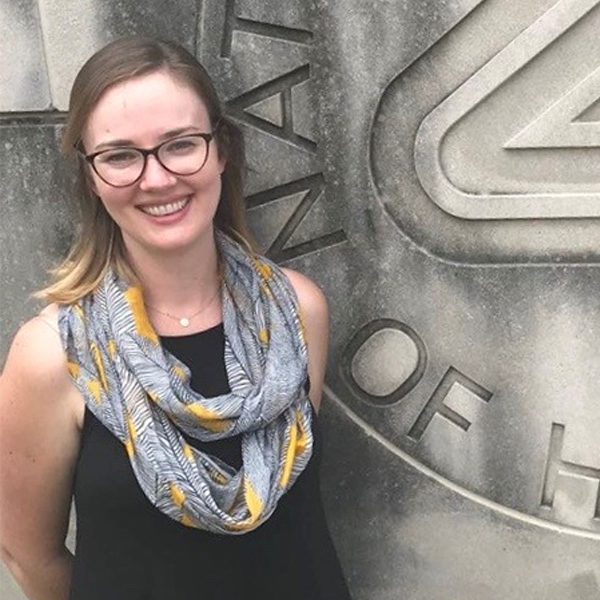Dean's Update
September 22, 2023 - Aron Sousa, MD
 Friends,
Friends,
This is Women in Medicine Month, and I have asked four women to write pieces reflecting on being a woman in medicine. Heidi Burns (’13), a child and adolescent psychiatrist at the University of Michigan, writes an excellent piece stretching from her time at the College of Human Medicine through Ghana to the NIH and into the academy.
Before we get to Heidi’s piece, I want to share that the Faculty Senate approved our proposals for departments in Neurosurgery, Pathology, Radiation Oncology, Urology, Otolaryngology, and Dermatology without objection on Tuesday afternoon. This the penultimate step before an approval decision by the Board of Trustees at their October meeting. This effort has been under discussion at the college and university for more than a year and a half.
There are many people to thank for the work so far, including the faculty and chairs of these departments at Henry Ford, who provided the data for the proposals and will be the backbone of the statewide departments. Associate deans Nara Parameswaran and Carol Parker were instrumental in creation of the proposals, and Chair Scott Counts with members of the CAC improved drafts of the proposals and approved the departments last fall. Last year’s Chair of the Senate Karen Kelly-Blake and Secretary for Academic Governance Tyler Silvestri shepherded the proposals to the subcommittees. Jamie Alan, chair of the University Committee on Faculty Affairs, helped us get unanimous approval at that committee, as we did at the committee on graduate studies. And, Jack Lipton, the current chair of the Faculty Senate made sure the proposals were considered and approved without objection just before the adjournment of the meeting Tuesday. Thomas Jeitschko and, especially, Norm Beauchamp and Steve Kalkanis were supportive champions for these departments. We have a month or so before our next steps, so I will have time to write more about implementation of these departments in the future.
Now, let’s get back to the piece by Dr. Burns for Women in Medicine Month:
 “I started my journey into medicine with a goal of being an advocate for women, initially believing I would become an OB-GYN as it seemed that would make the biggest impact in women’s health. Through an incredible opportunity at CHM, I found myself on a global health experience in Rwanda where I met psychiatrist Dr. Tatyana Sigal, who opened my eyes to the impact of global mental health. Dr. Sigal, whose personal story as a refugee is in itself inspiring, completed her psychiatry residency at MSU and traveled periodically to Rwanda to provide psychiatric care in a country that was still in the process of developing its mental health system following a harrowing history of genocide. At the time we were there, she was likely the only psychiatrist (let alone female psychiatrist) in the country, and it was galvanizing to see her caring for a population that had been jettisoned due to their complexity and limited resources. Sadly, we lost Dr. Sigal too early, but she left a legacy. Through her work, I realized that there was an opportunity to make great impact, both in mental health capacity building and as an advocate for the equitable care of vulnerable individuals such as women, who have historically been mistreated in psychiatry.
“I started my journey into medicine with a goal of being an advocate for women, initially believing I would become an OB-GYN as it seemed that would make the biggest impact in women’s health. Through an incredible opportunity at CHM, I found myself on a global health experience in Rwanda where I met psychiatrist Dr. Tatyana Sigal, who opened my eyes to the impact of global mental health. Dr. Sigal, whose personal story as a refugee is in itself inspiring, completed her psychiatry residency at MSU and traveled periodically to Rwanda to provide psychiatric care in a country that was still in the process of developing its mental health system following a harrowing history of genocide. At the time we were there, she was likely the only psychiatrist (let alone female psychiatrist) in the country, and it was galvanizing to see her caring for a population that had been jettisoned due to their complexity and limited resources. Sadly, we lost Dr. Sigal too early, but she left a legacy. Through her work, I realized that there was an opportunity to make great impact, both in mental health capacity building and as an advocate for the equitable care of vulnerable individuals such as women, who have historically been mistreated in psychiatry.
During my journey through medical school, psychiatry residency, child/adolescent psychiatry fellowship, and a post-doctoral research fellowship, I have benefitted from countless women mentors and colleagues, who have allowed me to see a path forward for myself. Female representation has grown significantly, with many medical school admissions now reporting more female students than male, including CHM! Last year, the AAMC reported that women accounted for 53.8% of all enrolled medical students and this matriculation trend in female enrollment has been consistent for the past 4 years.
Unsurprisingly, academic departments with 50% or more women faculty tend to have residency programs that show similar female representation. Representation matters! Departments such as obstetrics and gynecology, pediatrics, family practice, dermatology, public health, and psychiatry lead with the largest proportion of full-time women faculty and residents. There is no doubt in my mind that seeing women in leadership, research, and faculty positions allowed me to picture myself in those roles one day.
Despite the reassuring trends in medical school and residency acceptance rates, there is an area that still lags in female representation. There are fewer women in the upper echelons of academia. Although data shows consistent increases in female representation for full-time faculty since 2009, women do not advance at the same rate as men in academic positions. The other notable vacuum in academic representation is at the leadership level, where women make up only 18% of department chairs. These numbers are even smaller when you consider women faculty from a race or ethnicity group that is underrepresented in medicine.
I was fortunate to have a mentor who had traversed that difficult path through the glass ceiling and paved the way for others. Dr. Michelle Riba, a brilliant and kind psychiatrist who has more accolades to her name than I can list, embodies what it is to be an exceptional mentor. My eventual journey into global health research and leadership was not a path I originally thought possible. As I approached the end of my training, I was fortunate to have her as a mentor who saw that opportunity for me. She took the time to help me see that an NIH global health fellowship was accessible and gave me support to embark on a journey that changed my life. It is truly remarkable to find women leaders who have reached those upper echelons and still create space for other women to join them. I am lucky to have had women in my family and career that seek to empower the women around them. I hope we can all endeavor to do the same.”
My thanks to Heidi for sharing her experiences and the remarkable place Drs. Sigal and Riba play in her career! It was a particular pleasure to be reminded of what a wonderful and powerful example Tatyana set for us.
This week, our own Wanda Lipscomb, PhD, senior associate dean for diversity and associate dean for student affairs is one of the presenters at a Congressional Black Caucus conference with the AAMC entitled, “Preparing the Physician Workforce for Today, Bracing for Tomorrow.” Even if the Supreme Court rulings have changed admissions law for many states, at the college we are operating under the same admissions rules we have always had: no quotas and no race-based criteria. We have continued to admit classes who are diverse in every domain by focusing on our mission to provide service to the underserved and providing opportunities to applicants from a disadvantaged background. For decades, Dr. Lipscomb has been a national leader in this work and has brought the college tens of millions in grant dollars in service to our programs broadening the opportunities for applicants from Michigan and beyond.
Finally, it is about one year since we lost Peggy Thompson, MD, to cancer. Peggy was a great leader of the college and a diligent and stalwart protector of education, students, primary care, and her community. A group of us chose to remember Peggy through a scholarship in her honor. I am delighted to report that the endowment will be able to provide a scholarship this year, but you can still remember Peggy and support students in her name by contributing to the fund in her name. We still miss her.
Serving the people with you,
Aron
Aron Sousa, MD, FACP
Dean

